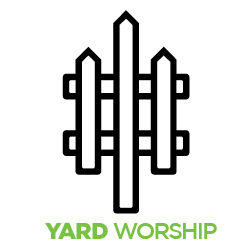CURB APPEAL IN WINTER
DIY Flower Pot Stand With A Lovely Boho Design
A flower pot stand is just what you need when you want to group up a few small planters together or raise a large one off the floor. This is also a little something that you can craft yourself at home using only a few simple supplies and tools. Curious how it’s done? Check out…
The post DIY Flower Pot Stand With A Lovely Boho Design appeared first on Homedit.


Materials needed:
- round wood board
- wooden rod
- ruler
- paint brush
- pencil
- lace ribbon
- wood glue
- creme acrylic paint
- spot glaze
- handsaw
- scissors
- hot glue gun

How to craft a flower pot stand from scratch:
Step 1: Measure and divide the wooden rod
Repeat this process for the other three rods as well and try to be consistent with your placement of the lace ribbon and the way you position it. Of course, it doesn’t all have to be perfect and little imperfections will give your flower pot stand character.




Step 2: Cut the rod into 4 pieces

Try to position the rods symmetrically and space them out evenly so the stand is balanced. You can measure and mark the spots where you want to place them with a pencil beforehand in order to be sure you’re not making any mistakes.
Once the glue is dry your lovely flower pot stand is complete and ready to become the newest addition to your beautiful home decor.


Step 3: Stain the round board



When you’re done with the leaves you can also sprinkle in some little polka dots or add a few other little details to make your design more interesting and to fill any empty spaces.
While you wait for the paint to dry you can work on the little legs for your flower pot stand. Take each little rod and wrap a bit of lace ribbon around it just like you see here. Cut the excess ribbon off and use a bit of hot glue to make sure the lace stays on.
Step 4: Stain the rod pieces

A flower pot stand is just what you need when you want to group up a few small planters together or raise a large one off the floor. This is also a little something that you can craft yourself at home using only a few simple supplies and tools. Curious how it’s done? Check out the step-by-step tutorial to see for yourself how a beautiful flower pot stand comes to life.

Step 5: Decorate the round board using paint


Repeat the same process for the four rod pieces you’ve cut earlier. This way the legs will match the top surface when the flower pot stand is assembled and will look just right.



Use wood stain or glaze or cover the entire surface of the round wooden board you’ve prepared for this project. Apply this using a paintbrush to both the front and the back side and don’t forget the edges either.
Using wood glue, it’s time to attach the rods onto the round board. Cover the end opposite to the lace with wood glue, then position it onto the back of the board and make sure it stands straight, gently pressing it down for a while until the glue starts to dry.

Step 6: Decorate the rods with lace





Using the pencil marks as guidelines and your handsaw, cut the wooden rod into four smaller pieces. Take your time and use a cork mat or a piece of cloth to protect the surface of your worktable as you’re doing this.

To make this design you first need to make four curved lines along the inner edge of the board, sort of line a frame. Then you add little dots in the spaces between them. The idea is that each of these lines represents a little branch so go ahead and add leaves to all of them.
This is where the acrylic paint comes into play. Use a thin paint brush and some acrylic paint in a contrasting color to decorate the round piece of wood once the stain or glaze is nice and dry. You can come up with your own original design or copy this one.
The wooden rod is going to be used to make the four little legs that will support your flower pot stand. Before that can happen you first need to measure it and then divide it into four equally-sized pieces. Use a pencil the mark the exact points where the rod needs to be cut.



Step 7: Glue the rods onto the back of the board




The post DIY Flower Pot Stand With A Lovely Boho Design appeared first on Homedit.





